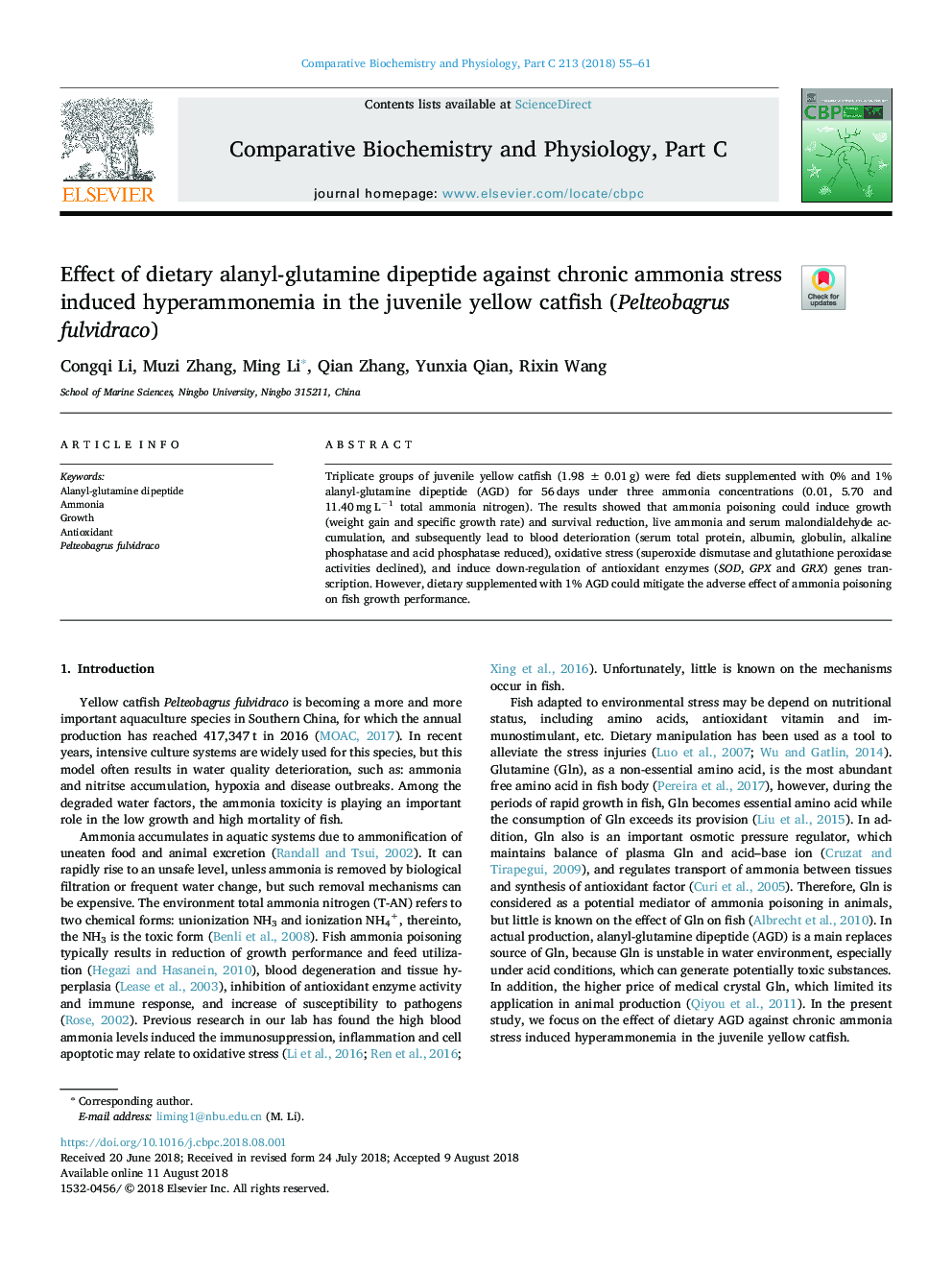| Article ID | Journal | Published Year | Pages | File Type |
|---|---|---|---|---|
| 8318954 | Comparative Biochemistry and Physiology Part C: Toxicology & Pharmacology | 2018 | 7 Pages |
Abstract
Triplicate groups of juvenile yellow catfish (1.98â¯Â±â¯0.01â¯g) were fed diets supplemented with 0% and 1% alanyl-glutamine dipeptide (AGD) for 56â¯days under three ammonia concentrations (0.01, 5.70 and 11.40â¯mgâ¯Lâ1 total ammonia nitrogen). The results showed that ammonia poisoning could induce growth (weight gain and specific growth rate) and survival reduction, live ammonia and serum malondialdehyde accumulation, and subsequently lead to blood deterioration (serum total protein, albumin, globulin, alkaline phosphatase and acid phosphatase reduced), oxidative stress (superoxide dismutase and glutathione peroxidase activities declined), and induce down-regulation of antioxidant enzymes (SOD, GPX and GRX) genes transcription. However, dietary supplemented with 1% AGD could mitigate the adverse effect of ammonia poisoning on fish growth performance.
Related Topics
Life Sciences
Biochemistry, Genetics and Molecular Biology
Biochemistry
Authors
Congqi Li, Muzi Zhang, Ming Li, Qian Zhang, Yunxia Qian, Rixin Wang,
